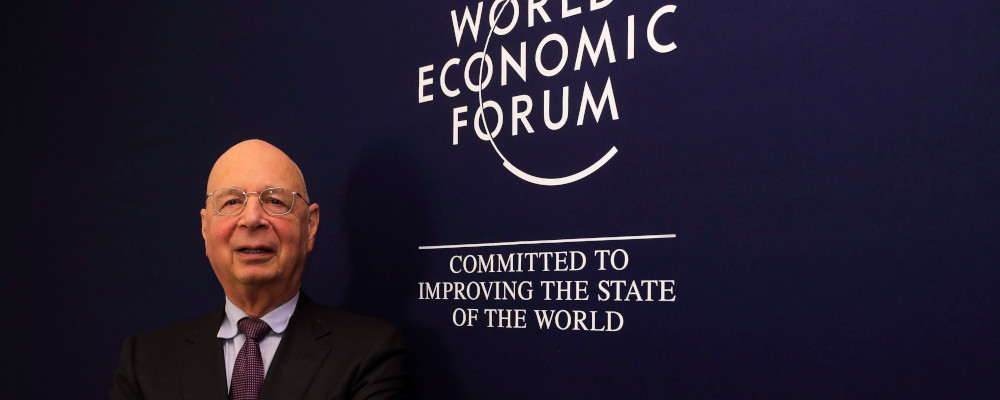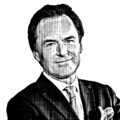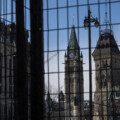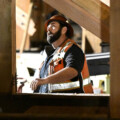Before the interruption of COVID-19, my family routinely spent an August holiday every year in rural Wales to visit the branch of my in-laws that live in the U.K. I am back for the first time since 2019, the reunion and re-access to the wine cellar at Cefnperfedd Uchaf, has got me thinking about a wine I have got to know here, and the pleasures of revisiting it year after year, vintage after vintage.
My first visit to Maesmynis was in the mid-90s before I had anything like a family of my own, and just an interesting girlfriend who thought I ought to see where she spent her summers as a kid. (My wife was born in England to Canadian ex-pat parents, and moved to Canada with her mother as a kid when her parents divorced.) What was a weekend and summer house in Wales is now the permanent home of my father-in-law and his wife Nancy (another Canadian ex-pat). Now the house and the barns that surround it are a working lavender farm,“The story of FARMERS’ and Wales’ first lavender farm begins in 2003 with the Oxford philosopher, Bill Newton-Smith, and international journalist Nancy Durham, wondering how their sheep farm might be put to new use under the blustery, grey skies of Wales. One fine spring evening in Wales, Nancy thought of the lavender hedge in their Oxford garden and wondered if she might be able to grow one on the farm. Never mind the hedge, by September that year an entire field of lavender had been planted. This is how the philosopher and the journalist became farmers, distillers of lavender oil and creators of lavender gifts.” https://www.welshlavender.com/about-farmers/ cosmetics business, agriturismo, shop, and tourist attraction.
I was instantly impressed by the beauty of the green valleys and hills of mid-Wales in the shadow of the Brecon Beacons and the Black Mountains. The routine for us in Wales then has not changed very much over the last quarter century or so, and I was glad that we got right back into it after the pandemic pause. Days are spent hiking across fields full of sheep and searching for panoramic views on the high moorlands. Evenings are spent preparing dinner, made from local ingredients, supplemented by whatever looks good from the garden, and raiding the wine cellar.
Bill, my father-in-law, earned his doctorate and then taught at Oxford. (One of his students was Boris Johnson.) There he developed an interest in wine and took the first opportunity he could to join his college’s wine committee. The Oxbridge tradition in wine, as I understand it, is firmly rooted in what the English still call, in some circles, Claret. In any event red Bordeaux was the order of the day in the 1970s, but the only one of the wines on the list that a young academic could afford was Château Cissac, a Cru Bourgeois from the Haut-Médoc.Blend: 75% Cabernet Sauvignon, 20% Merlot, 5% Petit Verdot http://www.chateau-cissac.com/uk/fiche_technique.php?vin_id=1&id_millesime=1 So his first purchase was a case of the 1970, and he hasn’t looked back since.
The English wine critic, author, encyclopedist, and broadcaster Jancis Robinson calls Cru Bourgeois “a category of red wine properties, or crus, designated bourgeois, or a social stratum below the supposedly aristocratic crus classés.” The idea being that those of us who have to work for a living might be able to enjoy well-made wines that don’t break the bank but exceed the reds headed for supermarket shelves. Recent vintages of Cissac, when they get to Canada, usually sell for about $30-$35 a bottle.
Bordeaux bottles more wine than all the other French regions combined, so while the few hundred Cru Bourgeois producers may be at the modest end of the classification spectrum, they are still very much at the pointy end of the quality pyramid.
Cissac is, in my humble and extremely biased opinion, one of the best of the Cru Bourgeois. In 2003, Robert Parker praised the Vialard family who have made it since the late 19th century. Writing in Bordeaux: A Consumer’s Guide to the World’s Finest Wines (4th Ed.), he states plainly that “their beloved Château Cissac produces one of the best Bourgeois wines of the central Médoc.” Parker adds [Cissac] seems to have a growing following among American connoisseurs who have the patience to wait for its slow (for a Cru Bourgeois) but sure evolution.”
Note Parker’s emphasis on Cissac’s ageability. Because I married well, I have had access, albeit intermittently, to a rolling vertical library of Chateau Cissac that has spanned about 50 years. In addition to buying each vintage of the wine “en première” when it is first released, Bill also buys wine at auction, and so I have had the pleasure of tasting Cissac from storied vintages like 1961.And 1982, but I have no notes for either because I am feckless and live in the moment when I am not consciously on the clock. It didn’t occur to me at the time that I would ever write about them. I do certainly recall they were very, very good.
1995 and 1996 were good years for Cissac, and I think Bill must have stocked up on both because there was a run of a few years when he’d serve them both at once. At first, the ’96 was the crowd-pleasing hare, but then the tortoise of ’95 opened up and won the race.
Bill won’t open a Cissac that’s longer than 10 years, and we don’t have it every night; it’s still a treat. On this year’s trip, we have enjoyed the 2008 in bottle and the 2009 in magnum. Both are mistakably Cissacs with left bank Cabernet Sauvignon driven notes of black current and a finish of cedar. In this way, it is a pleasure to be reunited with an old friend of a wine.
Of the two, despite being younger and in a larger bottle, it was the 2009 that struck me at point, mellowed, still good on fruit and acid, and holding a tannic structure that melted into a velvety wash. The 2008, on the other hand, was zippy and full of energy, with blackberry violet notes to complement the black current. If the 2009 was a wine of quiet contemplation, the 2008 still held some raucous character of youth.
Bill told me over dinner with one of the wines that there has been some talk among Cissac fans about whether recent vintages are being made to be ready to drink earlier. This may have as much to do with global warming, which has flattened vintage variation in Bordeaux and all but guaranteed ripe fruit every year, than a pre-meditated marketing decision.
It really shouldn’t matter how old a wine is if it’s well made and brings pleasure to its drinker. And yet wine is more than just a drink, and the tension between the consistency of a wine made at the same place over generations and the unpredictable variability of the wine from year to year makes tasting wine that much more fun. I guess we’ll see what’s happened at Cissac in a few years when we get into the 2010s.
Recommended for You

Malcolm Jolley: Cool Chardonnays for warm days

Malcolm Jolley: The LCBO strike was a spectacular misstep

Malcolm Jolley: Doug Ford is right. The LCBO has long outlived its purpose

Malcolm Jolley: What is rosé anyway?










